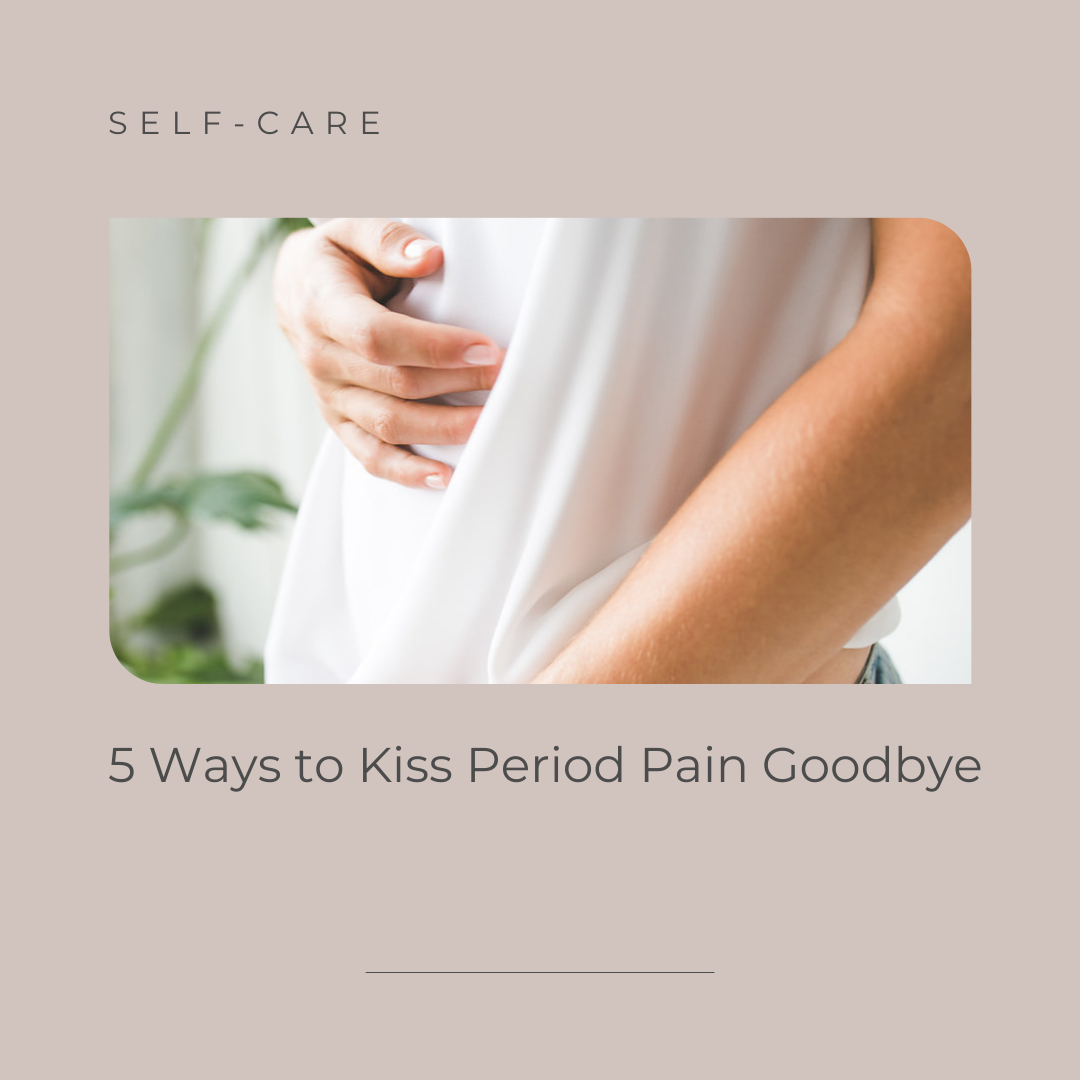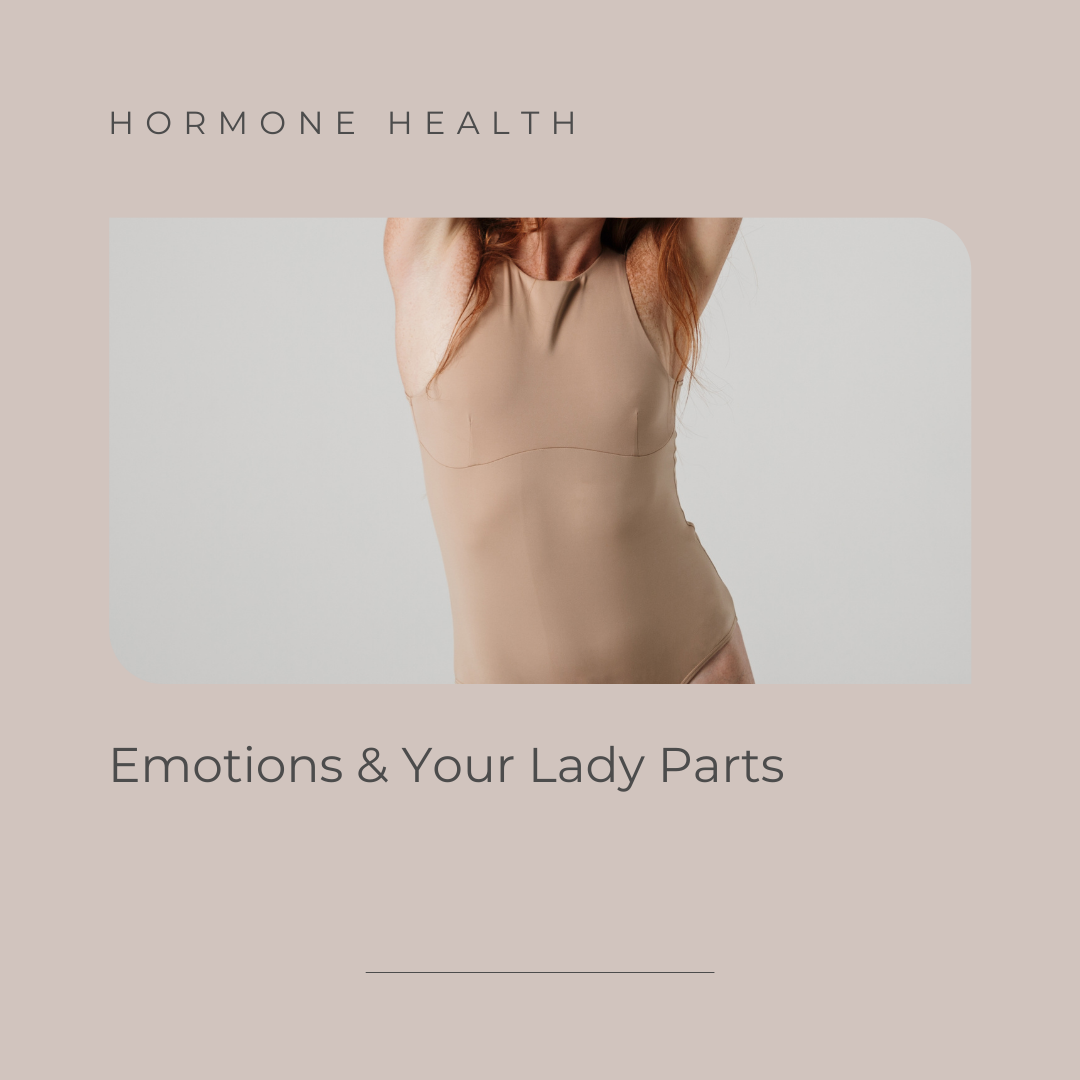Ever noticed that you become gradually more irritable, less focused, and a little slower in weeks 3 and 4 of your cycle?
You're not alone.
In fact, every menstruating woman feels similar, and despite what you may think, it's not entirely related to PMS.
Here's a personal story.
I used to organize and facilitate volunteer-led health projects in India for over a month at a time.
There were days when I felt so charged up and so pumped to learn, grow and collaborate as a team.
And then... there were days when I'm not gonna lie, the social and bubbly gal in me just didn't want to play.
I used to wonder how I could move from such a thick layer of self-confidence to one that felt thin as ice.
It was like I needed to cocoon inwards for a bit.
But instead, I would dull my body's need to slow down and make it seem like I had it all under control.
I would pretend like I wasn't phased by what my body was asking of me. I tried as best as I could to forge onwards with the same tenacity I had in weeks 1 and 2 of my cycle.
And it was SO exhausting.
After a few attempts, I realized it took way too much out of me to suppress this inner wisdom.
Now I know it has everything to do with my hormonal rhythms, and that's why today, I want to touch on progesterone as a key hormonal player in our cycle.
The Progesterone Pulse
At around day 14 of our cycle, progesterone is released from the ovaries and begins to reverse the effects of estrogen. We enter what's called the luteal phase of our cycle.
If estrogen is the fertilizer on our brain, progesterone is like the weed killer.
Estrogen is excitatory, while progesterone is calming.
Progesterone causes the brain to become more sedated. Our stress sensitivity changes and angry irritable impulses are turned right up.
The brain is highly responsive to progesterone and it explains why most women experience improved sleep patterns around weeks 3 and 4 of their cycle, when progesterone is on the rise.
Knowing the natural effects of progesterone during our cycle can help us better identify with our body's need to slow down and chill out.
It can give us the freedom and ease to choose more grounding and inward projects to support this hormonal shift, and not work against it.
The issue most women face is when PMS kicks-in right about the same time. While the increase of progesterone is a normal part of our cycle, PMS isn't.
Increasing levels of progesterone plus PMS create the prefect breeding ground for let's just say, things that we don't really mean to think, do or say.
Given that most women will have about 350 menstrual cycles in her lifetime, we gotta know which hormones are orchestrating our cycle and essentially creating our reality, right?
When we have the right information about how to nurture our cyclical and hormonal wisdom, we are better primed to make health choices that really work for us, and make us feel more in tune with our bodies.
To get you started, here are 3 ways to manage those PMS symptoms and to support the luteal (or progesterone) phase of your cycle.
Dose that Oregano
If you are trying to limit your salt intake to reduce PMS bloating, then oregano is one of the best ways to curb that craving according to the Journal of the American Society of Hypertension. The flavour profile of oregano satisfies our desire for salty foods. keep this dried herb in your spice cabinet, it will come handy in weeks 3 and 4 of your cycle.
Chomp those leafy greens
Leafy green vegetables are rich in B-vitamins and important for proper hormonal balance. B-vitamins help our bodies convert food into fuel and they support the nervous system to help us feel at ease.
Sip your herbals
Herbal tea is one of the most gentle and effective ways to reduce PMS symptoms. Did you know herbal ingredients can support different phases of the menstrual cycle? Herbal tea can help nourish the endocrine system, balance hormones and improve the body’s ability to handle stress. I've created a special PMS blend based on the herbal wisdom of our hormones.
Was this article helpful? I would love to hear from you. Leave me a comment below!
Much love and lady flow care,
Elaine Clark, nutritionist, trauma informed educator, women's health pioneer, and founder of LADYFLOW. Elaine works with health conscious women to feel at home in their body and awaken to their creative potential. She offers a variety of tools to support women with her classes, trainings, retreats, and wellness products.













